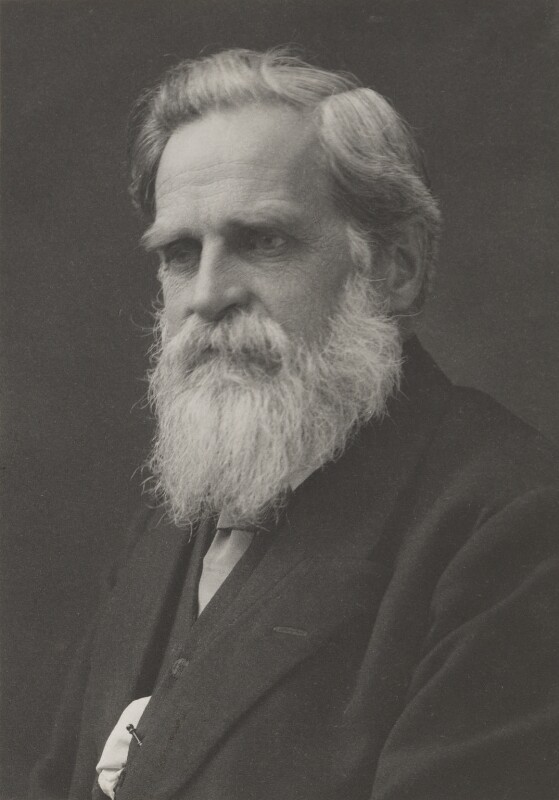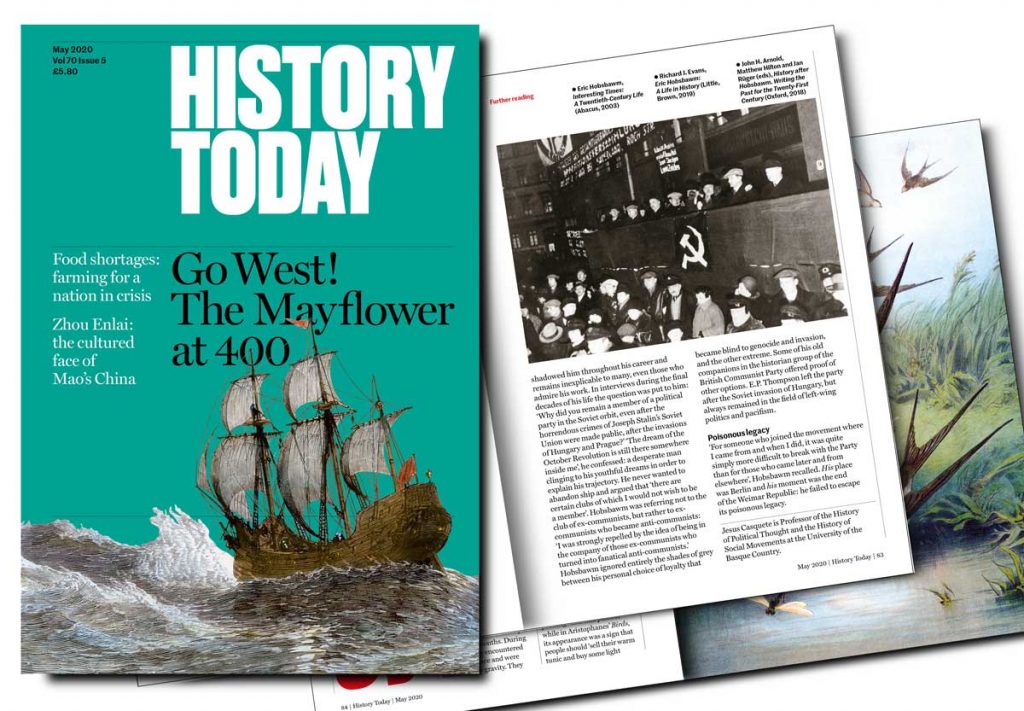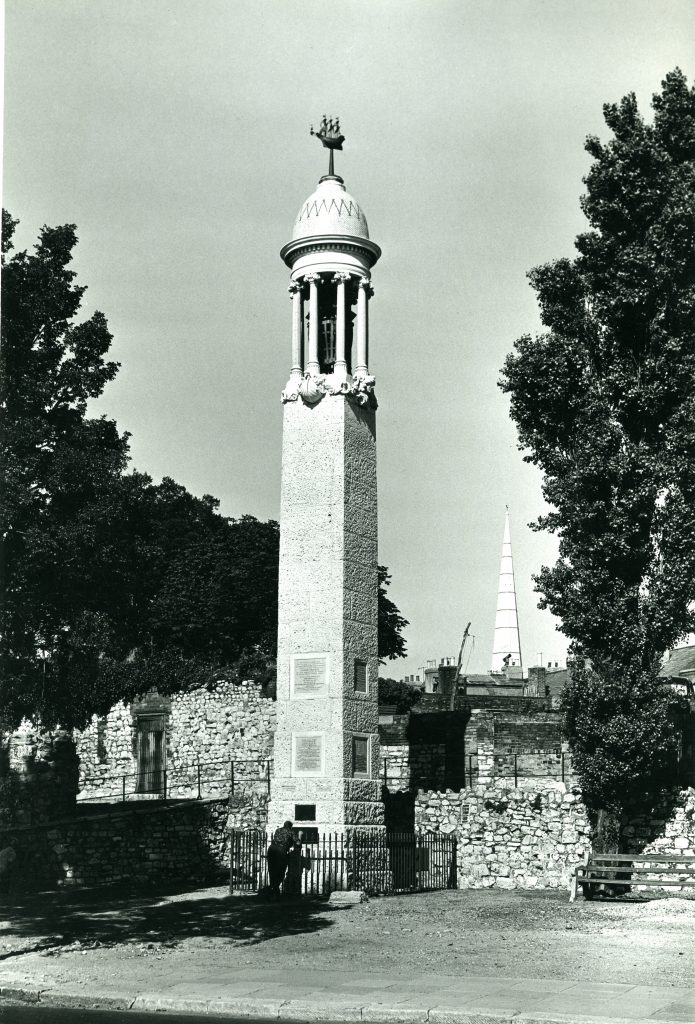Below you can find all of the published writing of our project – and keep a look out in the future for more articles!
The Mayflower and Historical Culture in Britain, 1620–2020 by the whole project team – available free to read in English Historical Review (2024) here
This (very long!) article in the world’s English-language history journal is a distillation of our biggest ideas about the changing understandings and use of the Mayflower story in British culture, all the way from the establishment of the Plymouth colony in 1620-1 to the 400th anniversary of the voyage in 2020. We cover everything in between from ecclesiastical histories in the 18th century to memorial churches in the 19th century, historical pageants in the 1920s to statues in the late 20th century. We make the argument that the the afterlife of the Mayflower is an ideal way to gain a more nuanced understanding of how ideas of history develop and evolve within broader arenas of politics and civil society, an interplay between memory, public history, heritage and popular history, and across forms of media (novels, plays, film) and spaces of interaction (cities, politics, movements).
“The Breaking Waves Dashed High”: Felicia Hemans, Romantic Poetry, and the Mayflower Voyage in Anglo-American Historical Culture by Ed Downey in European Romantic Review, volume 35, no. 4 (2024) – accessible here
In 1825, British Romantic poet Felicia Hemans (1793–1835) published “The Landing of the Pilgrim Fathers in New England” in the New Monthly Magazine, where it rapidly gained widespread transatlantic popularity. Hemans’s poem was subsequently republished in gift books, arranged as parlor music, and illustrated in new editions that maintained its appeal through the Victorian era and into the twentieth century. Her work popularized the term “Pilgrim Fathers,” redefining the 1620 Mayflower voyage and its Puritan separatists (previously referred to as “Brownist” emigrants) and shaping collective memory of this event for generations. This article traces Hemans’s influence on subsequent literary and historical portrayals of the Pilgrim Fathers, revealing how her poem contributed to a shared Anglo-American cultural narrative. Within the framework of “historical culture” studies, the poem serves as a crucial example of what Martha Vandrei identifies as “the practices of knowing, interpreting, narrating, and creating” that shape our understanding of historical consciousness. Ultimately, “The Landing of the Pilgrim Fathers in New England” inscribed a powerful vision into American cultural memory, defining one of the key myths of the modern world.
The Pilgrims’ Progress by Martha Vandrei, in History Today, volume 70, issue 5 (May 2020) – which you can buy online here
In this article, Martha traces an overview of the development of the Mayflower’s mythology in Britain – all the way from the first promotional tracts about the colony sent home in the early 1620s to the present commemoration in 2020. Throughout, she makes the point that the Mayflower has not just been an American story but a British one too, and one that could have a whole range of uses – political, romantic, and commemorative. From 19th century Chartists who saw the Pilgrims as radical champions of liberty to 20th century diplomats who instead saw them as an ‘Anglo-Saxon’ link between Britain and the USA, the Mayflower has been an enduring – if adaptable – symbol.
Memories of the Mayflower in Southampton by Tom Hulme, in Hampshire Papers (2020) – available to buy here
As one of the original ports from which the Mayflower set sail, in Southampton the memory of the Pilgrim Fathers has been particularly strong. But it hasn’t always been this way; it was not until the late nineteenth century that local people in that town started to think about the meaning and legacy of the voyage in relation to their own history. In this article, Tom looks at the emergence of interest in the Pilgrim Fathers in Southampton as a symbol of civic pride and Anglo-American diplomacy, and the expression of Mayflower memory in monuments, historical re-enactments and largescale commemorations.
“Why should not citadels become academies?”: transatlantic tercentenaries, higher education, and local pasts in Britain after the First World War by Martha Vandrei, in History: the Journal of the Historical Association (2021) – available to read for free here
This article examines two transatlantic tercentenaries that took place around the end of the First World War: that of the execution of Sir Walter Raleigh (1918), and that of the sailing of the Mayflower (1920). By sheer historical happenstance, these two major commemorative events were both centred on the county of Devon. Raleigh was associated with the city of Exeter, while the Mayflower pilgrims were indelibly linked with the maritime city of Plymouth. This thrusting into the limelight of two Devonian cities coincided with a regional effort to expand university education in the southwest. This article examines these two tercentenaries as case studies in the interaction between the transnational, regional, and local dimensions of commemorative culture and historical narrative in Britain. It shows how, in both cases, internationalism fed regional rivalries, with national agendas peripheral at best. The article’s second, related aim is to highlight a neglected aspect of scholarship on twentieth-century memorialisation, namely educational institutions as legacies of historical commemorative events. In both the Raleigh and the Mayflower anniversaries, links between the British locale and internationalism superseded any national aims or agendas, with both Exeter and Plymouth vying to be the regional leader in higher education, each bolstered by their claims to significance in America. Although neither scheme ultimately came to fruition, the tercentenaries nevertheless left behind educational legacies, calling into question the stark divide between “public” and “academic” history.

James Rendel Harris (a key figure in the 300th Mayflower anniversary), photographed by Walter Stoneman (1916), NPG Ax39095, © National Portrait Gallery
The Mayflower and ‘Mother Plymouth’: Anglo-America, Civic Culture and the Urban Past by Tom Hulme, in Cultural & Social History (2021). You can read here.
Historians are now well-attuned to the development of modern urban rituals and civic identities, and how both can depend on expressions of local and national historical character. In this article Tom take’s a different approach, by demonstrating how the idea of an Anglo-American shared past could also inflect urban culture. Tom uses a case study of the Mayflower in Plymouth, tracing this seventeenth-century voyage’s afterlife, from its romantic and nonconformist Victorian origins to its emergence as a symbol of transatlantic ‘Anglo-Saxon’ heritage in the opening decades of the 20th century, and all the way to its use as ‘heritage’ in the city today.

Plymouth’s 1934 Mayflower Memorial – N Chadwick – Attribution-ShareAlike 2.0 Generic (CC BY-SA 2.0)
Voyaging Through History: The Meanings of the Mayflower, 1620-2020 by Ed Downey – you can download here.
This pamphlet offers a guide to some of the key texts in British Mayflower literature, from novels and poems to travel guides and commemorative souvenirs. Ed provides a brief narrative of the development of the Mayflower story and its use by various authors over the four centuries since the founding of New Plymouth. The British Library provides a wealth of material with which one can trace this journey, so Ed has identified further texts for interested users in an annotated bibliography.



